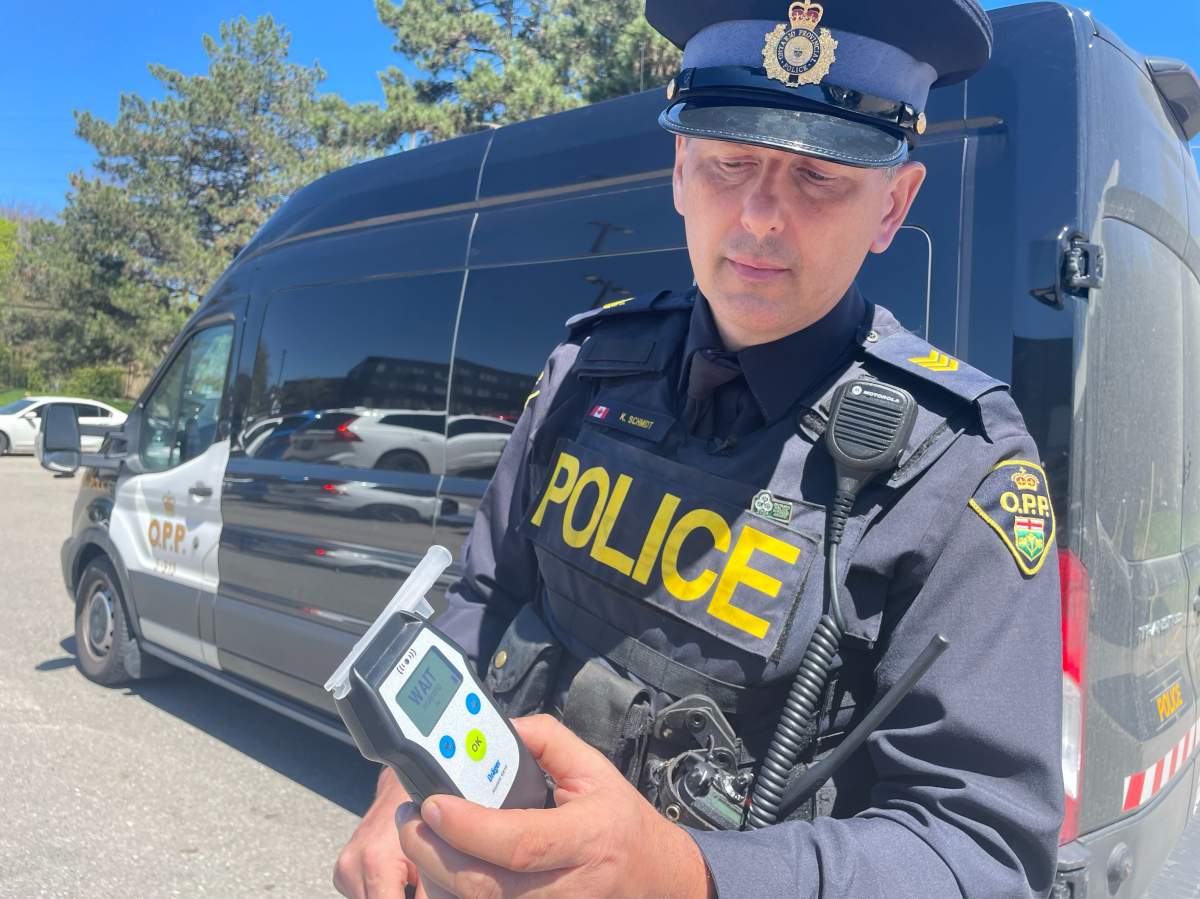Ontario Provincial Police say they are taking their strongest measures yet by requiring a mandatory breath sample from drivers for every traffic stop in the Greater Toronto Area.

The OPP said it is using the full extent of Canada’s Mandatory Alcohol Screening (MAS) which was amended in 2018 to allow police to demand a breath test of any driver even in the absence of suspicion.
OPP Sgt. Kerry Schmidt said breath samples to check for alcohol will be required even if drivers are pulled over for speeding, using a cellphone or other offences.
Impaired driving charges are up almost 30 per cent from five years ago. Schmidt said there was 11,000 impaired driving charges last year compared with more than 8,000 in 2019.
“We’re seeing a huge increase in those numbers and specifically in the GTA,” Schmidt told 640 Toronto’s Greg Brady.
Schmidt said there has been a dramatic increase in collisions so far this year — around 50 per cent more — compared with the same time frame five years ago.

Get daily National news
“Driving is a privilege,” Schmidt said. “And we want to make sure that the drivers who are operating in vehicles are not impaired.”
Schmidt said failing to provide a breath sample via a breathalyzer will result in a criminal charge.
“If you refuse, you’ll be arrested and charged,” Schmidt said.
Schmidt said the mandatory breath samples will be for drivers who get pulled over in the GTA on OPP-patrolled highways and roads due to the significant increase in collisions and will be re-evaluated moving forward if it continues or expands to the rest of the province.
“If we just check everyone, it’s going to ensure that we are consistent across the region,” Schmidt said.

Ontario has a zero tolerance for young, novice and commercial drivers who cannot have any alcohol in their system. This includes those under the age of 21; any driver of any age with a G1, G2, M1, or M2 licence; those driving a vehicle that requires an A-F licence or CVOR; or anyone driving a road-building machine.
Other drivers with a full G licence will face charges and/or penalties if their blood alcohol concentration level registers at 0.08 or more on a breathalyzer or if a driver falls within a warning range between 0.05 and 0.079.









Comments
Want to discuss? Please read our Commenting Policy first.